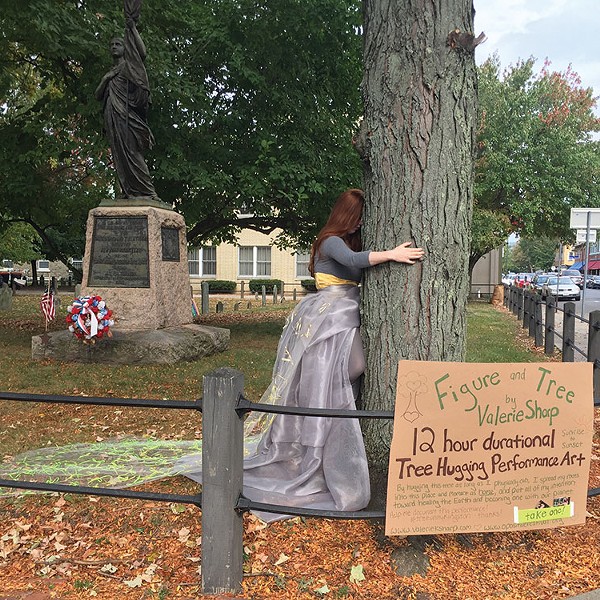For over 20 years, he worked as a public relations executive in the health insurance industry, eventually becoming chief of corporate communications at one of the nation’s largest for-profit insurers, CIGNA. Potter was a good spinmeister, perpetuating (and in some instances, creating) the cherished myths of healthcare in this country: that the United States has the best healthcare system in the world, that the free market will offer the best healthcare options for consumers, that single-payer healthcare is tantamount to socialism and will limit healthcare choices for patients.
By 2007, however, Potter was starting to have misgivings about the industry he increasingly believed was focused on profit and deception rather than supplying adequate care to its clients. One incident in particular affected Potter. On a trip home to Tennessee to see his parents, Potter visited a healthcare encampment set up by Remote Area Medical, a group that provides free medical care to remote communities. In his corporate mea culpa Deadly Spin
In 2009, Potter was testifying at a Senate hearing as the healthcare reform legislation was being drafted. His testimony helped galvanize pro-reform legislators and pulled back the curtain on what Potter termed “an evil system built and sustained on greed.” Potter is currently a senior analyst at the Center for Public Integrity and a senior fellow on health care at the Center for Media and Democracy. I spoke with him in early February.
What happened to turn you from an insurance company insider to an outspoken critic of the insurance industry?
I was having misgivings about what I was doing for a living for months before I decided to leave my job. It took a series of events to really push me to make the decision, and I had somewhat of an epiphany, a Road to Damascus sort of experience, back in the summer of 2007 when I was visiting my family in Tennessee. I happened to read about something called a “healthcare expedition” being held a few miles from where I grew up. I went there out of curiosity and it was almost as if it was divinely inspired or meant for me to be there because what I saw was life changing. It was a shock to see hundreds and hundreds of people lined up waiting to get care that was provided to them for free in animal stalls and barns. A scene that I just couldn’t imagine was in the United States of America. But I also knew that those folks were having to stand in line to get care in animal stalls partly because of the industry that I served and was a spokesman for.
In what ways did you see the insurance industry trying to influence the national conversation on healthcare reform last year?
I could see that the talking points my former colleagues and I had put together were being used by opponents of reform, and I knew that the insurance industries’ deceptive PR campaign was under way. The industry had a two-pronged PR strategy. One was to say things publicly that insurance company executives felt that the public would want to hear, and that the Congress and the president would want to hear, and these would be comments like “We’re supportive of healthcare reform this time, we’re going to be working with Congress and the president to help enact comprehensive reform.” When, behind the scenes, they were doing all that they could to make sure that the president’s vision of reform and the congressional leaders’ vision of reform was not going to be enacted. So I knew that a lot of the language being used by opponents of reform, such as “a government takeover of the healthcare system,” was coming straight from the insurance industry.
What were some of the other talking points developed by the insurance industry that found their way into the debate?
Some of the talking points were: This would be used as a move toward socialism, it would result in higher taxes, in people losing their jobs, in “death panels” being created, and that a government bureaucrat would be between the patient and his/her doctor. All of those are lies, and at the core of a fear mongering campaign that was very carefully developed as a strategy to try to scare people away from reform—the very reforms that would do people the most good.
You document at length in Deadly Spin the kind of corporate front groups that are used to serve as false sources of nonbiased information. Could you describe how one of them might work?
Well, these groups are set up with money from insurance premiums, premiums that we pay to our insurance companies. A portion of our premiums goes to finance them. We pay our insurance company, and the insurance company skims a portion off to go to a trade association like America’s Health Insurance Plan. That group, which is known as AHIP, then funnels money into PR firms to set up front groups. These front groups are actually creations of PR firms paid for by our premium dollars. They are created by the PR firms, they are run by the PR firms, they don’t have any real substance to them, yet they purport to be grassroots organizations.
From a point of view of a jaded journalist, these groups seem pretty easy to see through. Why are they able to wield so much influence?
They have quite a bit of traction. For one thing, it’s not just media relations, they take out advertising—these organizations are listed as the sponsors of ads that you see in print periodicals and on TV, so they’re not just set up to influence the media (and by that I mean reporters and producers), they’re actually named as sponsors for paid advertising. But for reporters, many of them don’t take the time to investigate who’s behind these front groups. They are quite willing to just take statements from them and feel that they have fulfilled the obligation to get the other side of the story by quoting them. It’s irresponsible journalism, and in many cases, it’s just a result of laziness on the part of reporters.
You write that the healthcare reform legislation was imperfect, and yet you still supported it. Why?
Because no legislation ever really gets through Congress as perfect, it’s just the way things are. No one can really ever get any kind of bill through that is exactly what the advocates of the legislation would want. Almost any legislation that is enacted is a compromise of one nature or another. That certainly was the case with the healthcare legislation. It was weakened over the course of the debate, but it was worth passing because it does do a lot of good. It will bring a lot of people into coverage and it will make a lot of the practices of the insurance industry illegal that should have been outlawed a long time ago.
What practices?
Such as being able to cancel one’s insurance policy when they get sick. It’s a practice known as rescission that they’ve been using for many years. And the consequence is that the people who need insurance the most can’t get it. The new legislation will prevent insurers from using pre-existing conditions to deny coverage to people. So it will make that practice illegal eventually. It is already in place for children; insurers cannot deny coverage for children with a pre-existing condition and this will apply to adults in 2014. It will also require insurance agencies to pay at least 80 percent of what we send them in the form of premiums—that they’ll actually use 80 percent of the premiums to pay for medical care.
There seems to be a built-in conflict of interest between quality healthcare and corporate profits.
Absolutely. It’s not like any other sector of the economy. The way it’s set up to meet Wall Street’s expectations, you have to engage in practices that are very anti-consumer, and that’s why these companies have been able to get away with a lot of these practices for so long. For example, the fast food industry would never operate like the insurance industry. Can you imagine taking your family (of different ages and different genders) to McDonald’s and the person behind the counter asking to see your identification to find out how old you are, and if you’re older, he’ll charge you three to five times as much as someone who is younger. He’ll say, “I’m sorry, but you’ll have to fill out this application” and, “tell me if you’ve been sick in the past” and if you tell the truth and have had asthma, he’ll say “I’m sorry, I’m not going to sell you a hamburger at all.” It’s just ridiculous the way that the system operates.
Recently you wrote on your blog how corporations are threatening the “very foundations of democracy” and how they put “the interests of corporations and of industry shareholders above the interests of individual citizens.” If that is the case, what’s to be done? They seem to be locked into place, and it doesn’t seem that the healthcare reform legislation did much to dislodge them.
Well, it’s just the beginning, and I don’t think they’ll be dislodged in one fell swoop, and I don’t see that democracy will be restored in one fell swoop, though maybe eventually it will be that way. It will be a process. We’re going to have to wake up to what’s going on. That was one of the reasons I wrote the book—to pull the curtain back and show people not only what happened and why we wound up with the healthcare reform bill we did, but also what the consequences are for democracy. I wanted people to see the way corporations behave and they use the tactics of PR to manipulate public opinion and deceive us.
You end your book by saying that the US will one day have the finest and most equitable healthcare system in the world. What makes you so optimistic?
Well, I believe in evolution. [Laughs.] I think that things can get better. I think in many ways our society is better than it was just 15 or 20 years ago. I believe it’s a possibility, and I think if people become more and more educated, if they will understand why I’m writing about it, if they will get engaged, organize, and learn to use the techniques of public relations—techniques that in and of themselves are not necessarily evil—they can enact change. And that’s what I hope will happen, that people who are advocating for positive change can succeed by using the very tactics that the opponents of change use, without resorting to deception and misleading people.
What would be the most efficient way to deliver the best quality healthcare in the most cost-effective manner?
I don’t know, I’m not someone who spent and inordinate amount of time studying that. But I will say that I’ll be going to Vermont later this month and I will be looking at what the Vermonters are doing. Their legislature is considering a form of a single-payer system based on some extensive studies as to what would work best for the state of Vermont. I think we need to pay a lot of attention to what they’re trying to do. It may not be the ideal solution for every state in the country, but I think the states might be able to lead the way. Connecticut is also doing something that’s innovative. Connecticut is considering the state-based public option. I think we ought to let the states experiment and also look abroad. Canada has a single-payer system, the systems in Europe are different and not quite like the Canadian system, and we need to look to see if we can maybe borrow from all of those countries.
Do you think there is a place for for-profit healthcare?
No, not as a means of financing healthcare. For years I did think so, but no. One of the reasons we have seemingly intractable problems is because of the profit motive that we’ve allowed to control so much of our healthcare system and that’s why costs have gotten so out of control. That’s why it’s so hard to reform the system. When you’re looking to reform the system, you’re looking to reform someone’s income and profit. That’s what makes it even more difficult to change than it otherwise would be. The profit motive in healthcare has not worked to the advantage of customers and it has not served to keep costs down—it has done just the exact opposite.


















